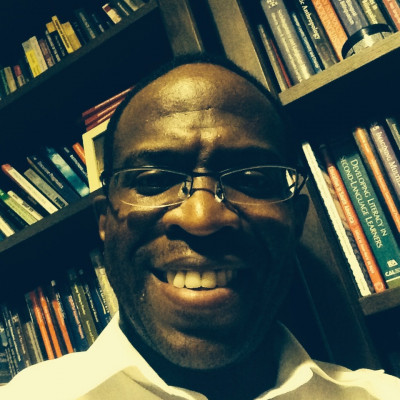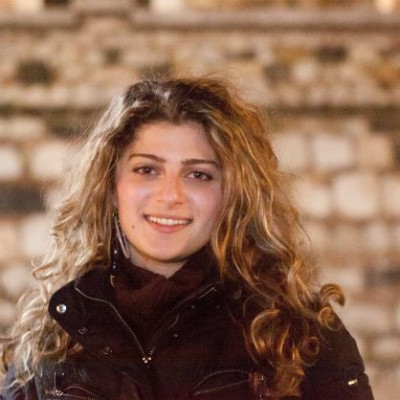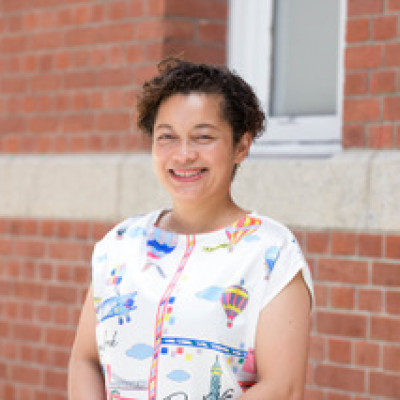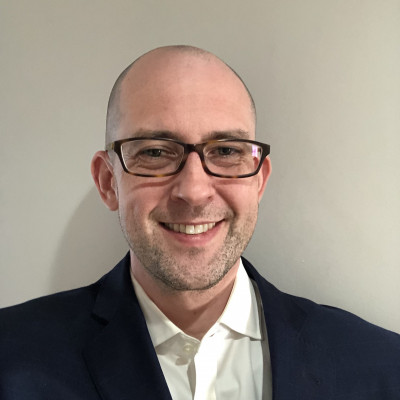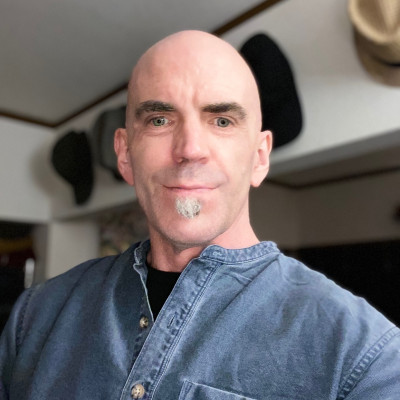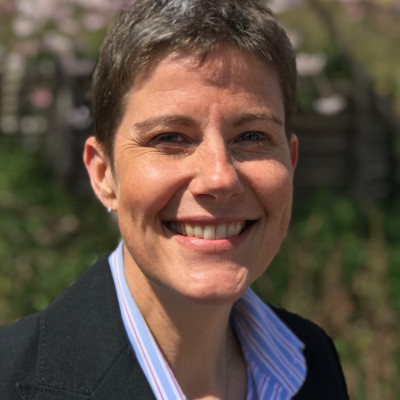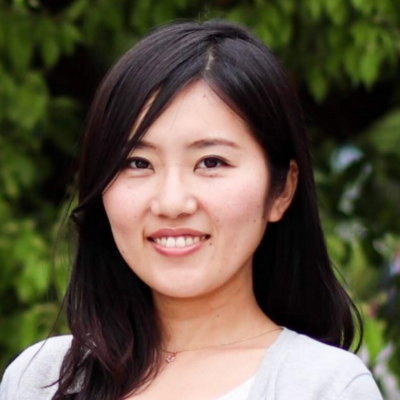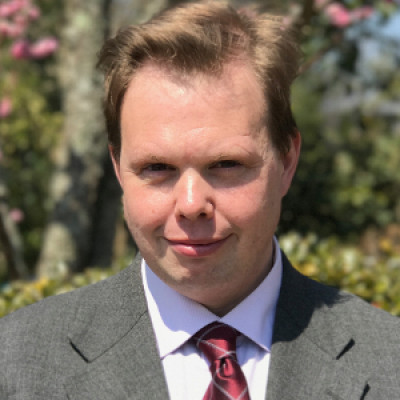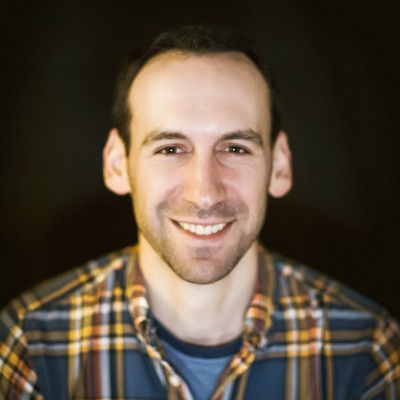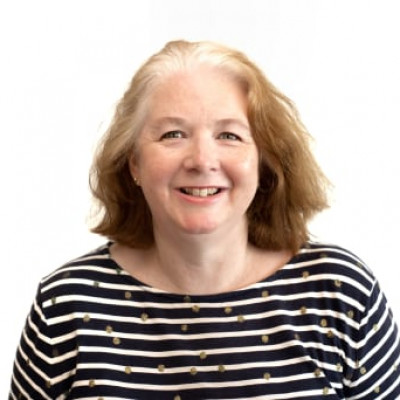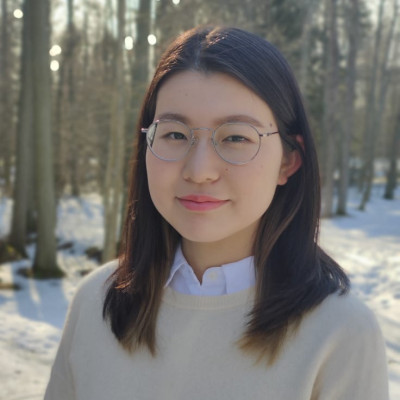Sessions / Interactive Presentation
ELT in Japan and the New Black Diaspora: (Re)imagining Work, Home, and Belonging #3124
This presentation highlights the experiences of a community of Continental African, Afro-Caribbean, and Afro-Western English teachers currently working and residing in Japan. I explore their shared professional and pedagogical experiences in a variety of contexts nationwide, as they conceptualize their roles as language teachers and renegotiate what the notion of "home" means to them as members of a transnational diaspora. Learning about the collective experience of these individuals has significant implications for the promotion of multiculturalism and diversity through ELT in Japan, a point that I explore in more depth.
Identity and Power #3125
母は韓国から20歳の時に日本へ来ました。父は在日2世です。彼女は韓国で高校までの教育は受けてきました。しかし、当時の教育に人権理解、社会との繋がり、個人の幸せなどが入る余地はなかったのでしょう。もしあったとしてもそれは数限られた、安定し、高いレベルの教育を受けた者たちの特権だったのではないでしょうか。彼女が全く異なる文化・社会・言語を持つ日本に来て、どのように彼女自身を自覚していったのでしょうか。その時に助け、導いてくれる人は一人でもいたのでしょうか。傷はどんどん広がり、深まり、人格を変え、そしてその思いは娘3人たちへと引き継がれます。彼女は豊かな言語表現を通してではなく眼差しで、行動で、表情で、そして数少ない語彙を使ってどうにかしてコトバにしようとしたり、伝えることを諦めたりしながら時が過ぎていったのです。3人の娘は小さい頃は無意識に、しかし歳を重ねるにつれじわじわと悩み、考えるのです。 私は認識し始めました。知ること、学ぶこと、話すこと、経験すること、それらを使って何かが手遅れにならないように努力する意味があるのではないかと。〜押し寄せる様々な力が個人に圧力をかけます。しかしその力を吸収し異なる力に変えていくことができるかもしれない。〜
My mother came to Japan from Korea when she was 20 years old. My father is a second generation zainichi. She received her education up to high school in Korea. However, there was no room for understanding of human rights, connection with society, and individual happiness in the education at that time. If there was, it was the privilege of a limited number of people with a stable and high level of education. How did she come to Japan, a completely different culture, society, and language, and how did she come to realize who she was? Was there even one person who could help and guide her at that time? The wounds spread, deepened, and changed her personality, and her feelings were passed on to her three daughters. The three daughters are slowly and unknowingly troubled and thinking, not through the richness of language, but through their eyes, actions, facial expressions, and the few words they have in their vocabulary. As the years went by, I began to recognize that, in the end, it is the children who are the most important. Isn't there a point in striving to know, to learn, to speak, to experience, so that it is not too late to use them? Isn't there something we can do to make each person feel happy? We can absorb the various forces that come at us and sometimes run away from them. Isn't identity to speak in a person's own words about what makes them happy?
Home is Where You Feel Safe and Supported: Vulnerabilities and Empowerment of Foreign Women in Disasters and Crises in Japan #3132
Disasters and crises are becoming the norm. Disasters and crises have a social nature and the concept of “home”, both as an infrastructure and a relational concept, is crucial to address disaster challenges. In particular, the association of women with the image of “home” often grounds discourses of women as weak and vulnerable. Are women really weak and confined to the domestic space, or is it a narrative that teaches them/us how they/we are vulnerable? In her PhD at Kyoto University, Irene Petraroli analysed women’s vulnerabilities in disaster preparedness in Kyushu and Kansai, Japan. She found that some aspects of female vulnerabilities and empowerment overlap in the home environment: women are expected to provide for other family members, but they are given insufficient information and lack decision-making power at the local and governmental level. Nina Hakkarainen founded Foreign Women’s Association Paruyon in 2007. Paruyon’s goal is to support foreign women by providing opportunities to meet other foreign and Japanese women, receive and exchange information, and build a community, “a home” to turn to in times of crisis. The pandemic has highlighted vulnerabilities foreign women face in Japan. It has increased their isolation as well as their dependency on their spouses/partners/children. Nina will talk about these vulnerabilities and share her own journey of building safe spaces, “homes away from home” for foreign women in Japan.
The presentation will be in English but the presenters will also accept questions in Japanese.
私自身が選んだ道・見つけた心の家 The Path I Chose and the Home I Found by Karimova Zarina #3133
私は、名古屋在住のウズベキスタン人です。2010年に来日し、私の人生は変わりました。来日すぐに経験した驚き、その後、日本社会で経験した数々の差別、孤独、温かい人たちとの出会い。異文化の中で、アイデンティティに悩み、差別や孤独に苦しみながら、見つけた自分の道、自分にとって安心できるホームとはについて話をします。私の人生のこれまでを皆さんと共有したいと考えています。
DeepL→ I am an Uzbek living in Nagoya, Japan. The surprise I experienced immediately after coming to Japan, the discrimination, loneliness, and warm people I met in Japanese society. I will talk about the path I found in a different culture, struggling with identity, discrimination and loneliness, and what is a safe home for me. I hope to share with you all what I have learned so far in my life!
How My Younger Sister Brought Me Into the World of Neurodiversity #3136
Having a sibling close to you in age means you spend most of your early lives together. In this interactive presentation, I will talk about my life as a Japanese undergrad student and my relationship with my younger sister who has Down Syndrome, specifically the precious opportunities and valuable experiences she has brought to me. Our relationship has changed over time, and not only does she bring a lot of joy to my life, but she has also given me new perspectives on working with people with neurodiversity, which is still a relatively new concept in Japan. I will also share my related experience of teaching dancing to a class of neurologically diverse students for about 6 years and discuss the importance of having such a safe and comfortable space, both for students and myself. Videos and photos of the dance classes will be used to demonstrate and compare the differences between typical dance classes and classes for neurologically diverse students. Tips on teaching such classes will be shared, as well as the history and logistics of setting up such a class for anyone interested in setting up similar classes in the future. The session will also include rounds of audience discussion and sharing as well as a short Q&A segment.
Beyond the Label(s): An Educator’s Multilingual, Neurodivergent and Gender Identities #3128
In this presentation, I will introduce myself through three labels: multilingual, neurodivergent, and queer identities. First, I will share my background as a multilingual growing up in the Philippines: a country with more than 100 languages and dialects. The second label is my neurodivergence. I would like to share how a neurodevelopmental disorder affects my life not only as an educator but also as a minority living in Japan. Finally, I would like to explain my gender identity and how it is perceived in Japan and the Philippines. Living with these labels and identities in a foreign country like Japan, I aim to present how a person with any or all of these labels can overcome the challenges of acceptance in order to find home in a society that can easily identify someone who is "different".
Finding Home in Academia in (or from) Japan 日本の(あるいは日本から)学界で家を見つける #3135
After about eight years in Japan I am still on the way to find home within Japanese academia. I want to take this opportunity to address the problem of finding acceptance within academia in (or from) Japan, by reflecting on my/our experiences within universities, scholarly associations, and study groups.
In this interactive session I would like to discuss issues such as: • the complexities of teaching something outside our specialization field (for example, teaching language while pursuing research on a different field) • the language and cultural barrier to feel integrated in Japanese universities and scholarly associations • the sense of ‘bubble’ and estrangement from Japan when communicating mainly with foreign faculty or belonging mainly to foreign academic associations • the struggle of whether to present or hide our ‘differences’ within academia (race, gender, sexual orientation neurodiversity, multiculturality, plurilingualism, etc.) • how to confront the barriers and challenges we encounter in Japan in general and Japanese academia in particular • how to manage or compensate for the solitude, frustration, or sadness of not finding home
I will also briefly introduce the anthropological concept of ‘cocoon community’, which I think might be helpful to explain why in some academic associations we feel estranged and in others we can feel at home, and the significance of non-academic communities.
Mediating Between Cultures: Intercultural Parents Raising their Children Transculturally in Japan #3134
The impact of increased ethnic diversity in Japan has attracted considerable attention in the field of multicultural studies in Japan, with rapidly changing demographics, social structures and ideologies as a result of the growth of immigration in the country and worldwide. Immigration and its outcomes have also initiated a new trend towards an increase in intercultural marriages in Japan. In particular, the increase in the number of families with multicultural backgrounds in Japan has been the focus of much research in recent years. Raising children transculturally, which adds several new dimensions to the dynamics of parenting, can be challenging for multicultural families. Consequently, the intercultural parenting experience is emerging as an important issue in Japanese society. What are today's trends and challenges of intercultural parents raising their children in two or more cultures in Japan? Other than cultural background, do systemic and contextual factors also impact the way parents raise their children? The first half of this presentation, will be focused on reporting findings from a small-scale qualitative study of the experiences of three intercultural couples raising their children transculturally in Japan. The second half of this presentation will be interactive with participation from the audience to discuss the common benefits and opportunities of transcultural parenting as a source of strength rather than a weakness.
Cancelled Building a Rainbow Family in Japan #3137
Finding a life partner, getting married and trying to have children in the midst of the pandemic would have been hard enough in a country that supports LGBTQ+ families, but doing all of that in Japan brought extra layers of complexity. Join Carey and Allison as they share and reflect on their experiences with fertility treatment, prenatal support, name changes, visas, workplace challenges, parental rights and birth registration, as a foreign same-sex couple living just outside of Tokyo. It will be an informal session where participants are welcome to ask questions and share their own experiences. Carey is a South African and British dual national, while Allison is Canadian. Both are in their mid-thirties and teach English at private high schools. Allison first came to Japan on the JET Programme in 2012, and has been here ever since. Carey lived here from 2009 - 2016 and then moved back to South Africa for a few years, before returning to Japan.
Japanese-International Blended Families and the Impact at Home and School #3147
Since the 1960s, the percentage of blended families, also known as stepfamilies or blendfamilies in Japan, has steadily increased from about 11% of the population to 26% (Gender Equality Bureau, Cabinet Office, 2021). Previous research on blended families has centered on mental health, cultural views, values of grandparenting, mothering, and fathering and family policies and law (Sugimoto & Yokoyama, 2017; Nozawa, 2020). However, there is limited English research about the effects of international-Japanese blended families and education. This presentation adopts Nielsen’s (1993) model to study these effects on students in the Osaka region. It focuses on three questions: 1. What factors affect grades and behavior after a separation? 2. How are students’ attitudes toward separation and family members assessed? 3. What ways can schools facilitate students’ adjustment and academic performance after their parents separate or re-marry/re-partner? Surveys were created and sent to children in international-Japanese blended families. This data will be analyzed using Conventional Content Analysis (Krippendorff, 1989; Hsieh & Shannon, 2005). Preliminary findings will be presented at Living On The Edge 2022: Finding Home. It is also hoped that discussions will contribute to the development of this research.
Breathing Exercise + Open Talk about Self-Care (TELL) #3154
Join us to participate in a short breathing exercise followed by an open discussion of self-care approaches.
Addressing Conflict and Living on the Edge: Plurilingualism, Multiperspectivity, and the Cold War in a University EFL Class 大学EFL授業にコンフリクトを取り上げる意義:冷戦史を通して育てる複言語主義、複眼的思考 #3148
The war in Ukraine has reawakened Cold War fears and made 20th-century history relevant to students who have grown up in an age of peace. Considering these circumstances, this presentation introduces a course entitled English Expression through Song, taught by the author, centered on music of the cold-war era. The course aimed to foster analytic ability of English song and metaphor, contextualized within cultures and histories, and to promote multiperspectivity (Kropman, van Boxtel & Van Drie, 2020) and decentering (Candelier et al., 2012). The course emerged from the author’s attempts to reconcile his bi/plurilingualism with expectations to act as a ‘native-speaker’ in an English-only capacity (Pearce, 2021). The presentation explores how the author ‘found his home’ in the classroom employing his plurilingualism and background in Cold War foreign diplomacy. Additionally, qualitative analysis of student reflections and post-course interviews will illuminate shifts in learners’ developing understanding of language, culture, history, and conflict, as well as shifts in their identity as language users. The conclusion touches upon how addressing historical conflict in the course may have helped the students begin to localize their 21st-century identities as part of a complex, conflict-fraught world in which their future trajectories are increasingly unclear, and peace is no longer certain.
Loneliness and the Long-Distance Parent #3155
Homes where the parents have split up are given the unfortunate monicker of “broken.” Co-parenting, under the best of circumstances, can be a challenge. Co-parenting from a distance brings additional difficulties, giving rise to questions of doubt and struggles with connection between parent and child. In this presentation, poet/singer-songwriter Phil Norton will share his experience co-parenting, often from another country, his struggle with loneliness as the secondary caregiver, and his use of creative expression to work through some of the resulting emotions. This presentation will also look at the isolation many faced during the pandemic as another type of “broken home” where family members were separated from one another. This presentation will incorporate original songs that illustrate various aspects of striving for a sense of home.
Gratidoodle #3139
Positive psychology offers several approaches individuals can take to raise their own levels of well-being. In this short session I’ll demonstrate a method I stumbled across to find my own home in happy.
Where’s Home for Rural Japanese Women and Their Language on the Move? #3140
Educational disparities exist in Japan according to socio-economic status, region and gender (Matsuoka, 2019). In terms of regional disparities in particular, Kagoshima Prefecture has the lowest rate of students entering four-year universities in Japan, and there is a large gender gap. I myself am a woman from Kagoshima who was once opposed by my parents to going to university or studying abroad, but after going through various processes, I completed my Master’s in the UK and am now studying in a doctoral course. Where, or when, do those from rural areas who go on to university or study abroad, overcoming their parents' opposition, eventually find home? Will they be able to remain themselves of the same culture and identity after returning home? And while learning a foreign language or studying abroad may broaden both one's career path and cultural horizons, at the same time, will it not cause them to suffer from gaps with their local culture? In this presentation, I will attempt to answer these questions through my previous interviews with women from Kagoshima Prefecture and my own autoethnography. I would also like to make this an interactive session, with time for participants to share their own stories.
Language Acquisition as Identity Formation: What it Means for Pedagogy #3149
Language acquisition is a complex process. While there have been many constructs designed to explain the process, one promising one is identity formation. This posits that language is formed alongside a new identity. The presenter will explain the concept of multiple identities, and how it fits into this theory. Furthermore, the presenter will explain what exactly this looks like in the language classroom. This discussion will be supported by literature from feminist, ethnic minority, and LGBTIQ perspectives. The presenter will follow-up with a discussion of why identity should be given greater weight in the language classroom. Specifically, the presenter will discuss why inclusive materials that promote critical thinking. Inclusivity must be seen from a dual perspective. First, inclusivity is important so that students find their home in the materials. Second, inclusivity is important so students can see their imagined community in the materials, finding a new home. Finally, the presenter will offer three pedagogical tools designed to exploit this process: narrative engagement, extended roleplay, and collaborative story writing. If there is time, the audience will have the opportunity to engage with these approaches before a discussion of what it means for their practice.
Thoughts After Completing the Parent-Child Study Overseas Program - Home of My Own 親子留学を終えて思う〜自分の家〜 #3142
カナダからの帰国子女として人生の前半を過ごした私ですが、約3年の滞在では通訳が出来るほど英語が上達して帰国した訳ではなかった。日本語も英語も半分半分 - 考え方も行動も和洋折衷。しかし、自己形成に大きく影響を与えたカナダでの経験は、その後の人生において世界の人達と英語で接して生きていきたい、そして再び海外で生活したいという願望へと繋がっていった。しかし、月日が流れ日本での生活が長くなるにつれ、英語を話す機会も減り、いつしか西洋国で子育てをしたいという想いなども現実離れしていった。
そんなある日、長男のアメリカ大学進学を機に、次男と2人でバンクーバー親子留学をしてこないか?と夫が提案してくれた。チャンスを取ることと現実の狭間で答えに迷いはあったものの、この機を逃せば次は無い。挑戦してみることを決めた2018年。
9歳になる次男にとっては寝耳に水。そこから始まった親子奮闘劇。
いざ渡加してみると、不安や恐怖心から頑なに英語世界に飛び込む事を拒否した息子。幼い頃、父の仕事でカナダへ渡った時の自分とは真逆の反応。そしてプライドが邪魔をし日本へも帰りたくない息子... どこへ行けばいいのか...世界規模で居場所を失った様に感じた。どうやって彼を救えばいいのか途方に暮れた。もがき苦しんだ期間、約半年。なんとか乗り越えた。結果3年半を過ごし帰国した今、息子はカナダに留学できたことを本当に喜んでいる。
日本とバンクーバーを行ったり来たりした3年半。時間も気持ちも切り替える事に慣れていった。民族と文化の多様性を深めるカナダで過ごしたことにより、様々な国の人が様々な経歴や理由をもとにカナダに移住し調和して生きているのを見て来ました。自分の家はどこか?自分の居場所はどこか?究極を突き詰めると、今を幸せに生きているのならどこだっていいじゃないか、と思う様になった。それくらいフレキシブルに好きな場所で好きなことをする為に生きている人が世界には沢山いる。そういう視野を持つだけでも自分の世界観は格段に広がるのではないでしょうか?このプレゼンテーションでは、その様なことを共有できれば幸いです。
I spent the first half of my life as a returnee from Canada, but I did not return home with my English improved enough to be able to interpret during my three-year stay. Half Japanese and half English - a blend of Japanese and Western in my thinking and behavior. However, my experience in Canada, which had a great impact on my personal development, led me to a desire to connect with people around the world and to live abroad again in the future. However, as time went by and I lived in Japan longer, I had fewer opportunities to speak English, and my desire to raise my children in a Western country became less and less realistic. Then one day, my eldest son was about to enter university in the U.S., “why don’t you and second son go to oversea study (Canada)?” My husband had not forgotten my desire wanting to raise my children abroad! Although I was torn between taking a chance and the reality of the situation, I knew that if I missed this opportunity, there would be no next time. We decided to give it a shot in 2018. For my second son, who was 9 years old at that time, it was a bolt from the blue. The parent-child struggle began there. When it came time to come to Canada, my son stubbornly refused to dive into the English-speaking world out of fear and anxiety. His reaction was the complete opposite of my own when I first went to Canada for his my father's work in my childhood. I offered my son an option to return to Japan, but my son’s pride got in the way and he didn't want to go back to Japan either... Where to go... I felt like I lost my place in the world. I was at a loss as to how to save him. We struggled for about six months but we managed to get over it. Now that we have returned to Japan after spending three and a half years and as a result, my son is really happy that he was given a chance to study in Canada. During our stay in Canada, we went back and forth between Japan and Vancouver. From that experience, we got used to switching time and feelings. Having spent time in Canada, a country that has deepened its ethnic and cultural diversity, I have seen people from many different countries immigrate to Canada and live in harmony based on various backgrounds and reasons. Where is my home? Where do I belong? Ultimately, I came to think that it doesn't matter where you are, as long as you are living happily in the present. There are many people in the world who live to do what they want, where they want, with that much flexibility. I believe that just by having such a perspective, one's view of the world will expand dramatically. We hope to share something like that in this presentation.
Where am I from?: Searching for my Cultural Identity #3150
“Where are you from?” It seems like such an innocent question, but even now I still feel conflicted when asked, and when trying to answer. Where am I from? I am the daughter of two-time immigrants, and I am an immigrant in my own right as well. I have lived in the country of my parents’ birth, the country of my ancestors. I have lived in the country of my birth, the first country my parents emigrated to, and the country I married into. I have lived in the country where my parents finally settled, and where I mostly grew up. I identify with each of these countries. Lastly, I am an immigrant to yet another country.
So, where am I from? Where do I fit in? Who am I? What is my cultural identity? These are all questions that are difficult to answer.
In this interactive presentation, using the example of my and my family’s stories of immigration, I will explore some of the complexities of cultural identity that emerge in the face of the superficially simple question “Where are you from?”
Who am I: A Returnee’s Search for Cultural, Linguistic and Occupational Identity #3143
The presenter’s life has been full of identity crises and self-doubt. But after five decades of struggle, she has found peace and belonging. Cultural and linguistic identity began at age six when due to her father’s job, the presenter moved from Japan to Canada and the United States. As her language ability evolved from monolingual Japanese to fully bilingual, she struggled with cultural identity especially after facing racism from Americans and Canadians. When she returned to Japan at age 13, she faced even more discrimination as a returnee, complicating her identity. After 15 years of not fitting in anywhere, she finally found “home” at a private high school that accepted returnees (Doshisha Intl High School). There, she learned that being different made her unique. As an adult, she struggled with occupational identity in her 20s and 30s after working in the media and NGOs and suffering health problems due to overwork. She began teaching English at age 35 and found her true calling. When she obtained her Masters degree in education at age 42, she feared she wouldn’t get any university work due to that ageism and lack of experience. But employers appreciated her past work experiences, and she now teaches English, journalism, translation skills and interpretation skills at four universities in Tokyo. This presentation will discuss how the presenter overcame racism, ageism and conclude that being atypical can be a strength.
Leaving the NEST: Reflections as an American Teacher of Japanese in an Australian High School #3151
In recent years, there has been growing recognition of nuance in the dichotomy between NESTs (native English speaking teachers) and NNESTs (non-native English speaking teachers). However, even as the complex definition of a native speaker is explored and scrutinized, it can still be difficult for those who identify unambiguously as a NEST or NNEST to understand the challenges and strengths of the other side. The presenter, a NEST from the US, had a chance to bridge this gap when he was offered the opportunity to teach Japanese language classes in an Australian high school. Over a two week period, he taught beginner level classes to three groups of thirty 7th graders and one group of twelve 8th graders. In this interactive presentation, he describes how the experience of teaching a foreign language in a foreign country broadened his understanding of home. He shares the details of lesson planning and delivery, highlighting moments affected by his status as a non-native Japanese speaker. He then explains how this influenced his English teaching practice and helped him to better understand and embrace differences with NNESTs in Japan. Finally, participants are invited to reflect on where their own home bases lie and to critically examine implicit biases they or their colleagues might hold from their own experiences with native speakerhood.
Female Non-WEIRD Students’ Experiences in Japan #3144
The number of students coming from abroad to attend Japanese universities has increased significantly over the last 10 years following government initiatives regarding globalization. Many of these students come from non-WEIRD (Western, Educated, Industrialized, Rich, and Democratic) countries and engage in English-medium learning at the graduate level. This presentation will discuss the present situation in Japan regarding international students, and the flow of students globally, with a particular focus on female students. Then the experiences of 3 female graduate students studying at a Japanese national university that focuses on STEAM subjects will be examined. The participants come from diverse backgrounds, and semi-structured interviews were used to explore their experiences in their new environment. The narratives were analyzed using grounded theory and the discussion of the results explores the push factors that encouraged the participants to leave their home countries, and the pull factors that attracted them to Japanese higher education and their new homes. Additionally, whilst acknowledging the problems female international students have in Japanese universities positive aspects of studying in Japan will also be highlighted.
Telling Stories and Making Space #3152
I confess. Minutes after becoming an American citizen I told a lie. On examining my “why,” I have come to realize that living in the liminal space of dual citizenship opens up spaces for learning about how to negotiate identity through geography and storytelling. Liminal spaces can be the in-between spaces not fully defined; not fully one or the other. Yet it is. Argentine scholar Walter Mignolo (2011) contend that we must tell our stories from those places in which we dwell. Hence as a Caribbean person, having lived on 3 continents and several islands, I invoke Afrikan-Caribbean vernacular practices to make home abroad. Storytelling plays a major for passing down knowledge, to teach, and make theories. Everybody and every body has stories, and different ones. Difference can be explored as and through stories at any level. Thus, in this presentation, I will share stories of how I make space for belonging for myself, and students through storytelling. My approach is interdisciplinary, drawing on ethnography, anthropology, literature, and cultural studies. I will invite the audience to consider how stories from the edge can be used to intervene in civil and academic conversations to bring visibility and voice to difference.
Finding Home as a Life-Long Learning Process - My Journey in Finland #3145
As a Japanese woman and an immigrant, living in Finland and working at an NGO, I would like to share my journey of finding a place where I feel I belong to as part of a life-long learning process. Also, I have been dealing with mixed feelings from having to establish a place where life goes on in Finland while not being able to physically be at the home where my family lives in Kyoto.
I see my journey in Finland as a learning process, because it involves continuity such as understanding the country’s system, culture, learning the language, making new friends and finding work. It has been a process for me to increase my feeling of belonging alongside finding people who I care about and who are supportive of me.
I would like to also emphasise the importance of taking care of myself in a rapidly changing world, where in the middle of chaos, I seek a state of mind that can focus on positive things and reflect on things to improve on. This ability has become crucial to balance a life where the physical home exists somewhere outside of where I currently am.
I hope to have active discussions with participants and exchange thoughts on the learning processes behind finding one’s own home.
